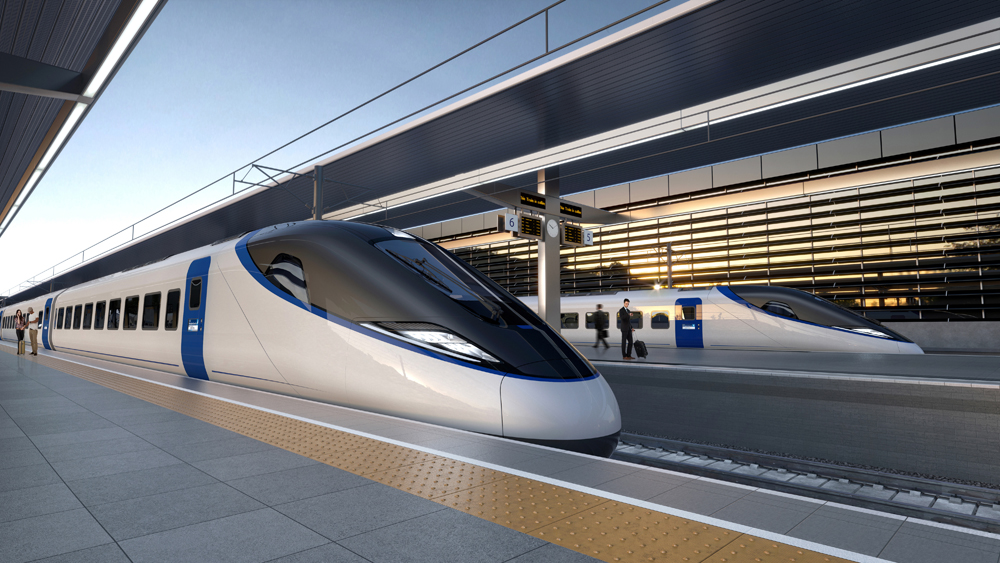
A joint bid from Hitachi and Alstom has won the contract for a long-awaited, $2.6 billion order for the fleet of trains to operate on Britain’s new HS2 high speed line. The 54 eight-car electric trainsets, designed to routinely operate at 225 mph, are being described as the “fastest trains in Europe.”
Recently announced plans to scale back part of the HS2 system [see “British government changes high speed rail plan,” Trains News Wire, Nov. 23, 2021] mean that the fleet ordered will be sufficient for the start of operations.
The new trains will be the first in Europe built for routine 225-mph operation, and will also operate at up to 125 mph on the existing British rail network to allow for through service to cities not on the HS2 routes. While Hitachi-made Frecciarossa trains in Italy and Siemens’ Velaro trains in Spain are both designed for the same or similar speeds, neither are used at such speeds as the lines they operate on are not cleared for routine use above 190 mph. The trains will have around 550 seats in each eight-car EMU; up to two EMUs will be able to operate together, offering 1100 seats.
The manufacturers claim the new trains will be the “world’s most energy-efficient very high-speed trains due to the lower train mass per passenger, aerodynamic design, regenerative power and latest energy-efficient traction technology.”
Made in Britain
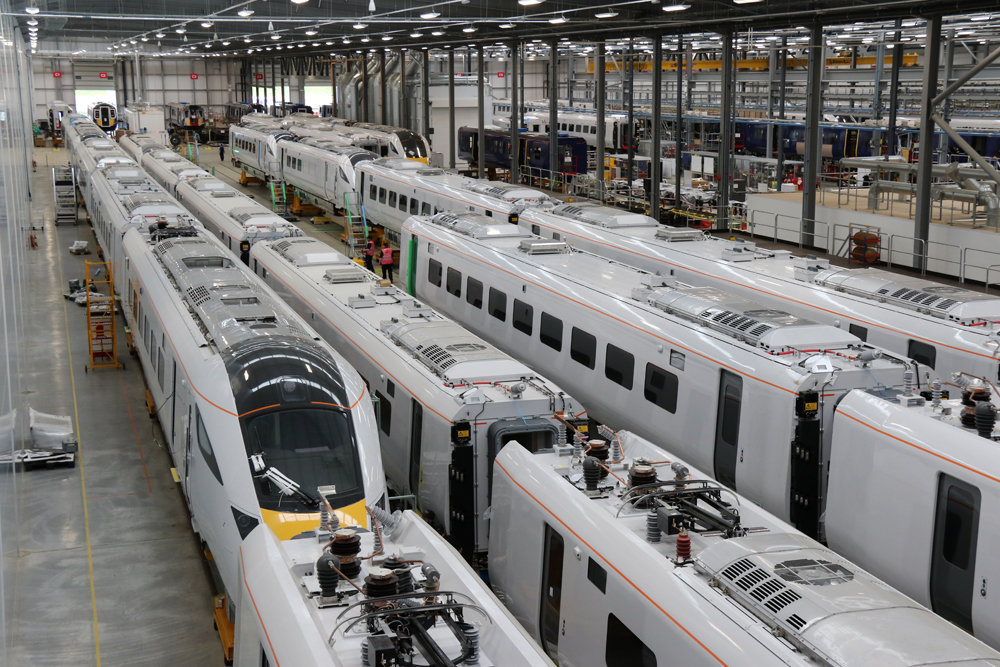
The trains will be built in Britain from 2025 onward, although some key components, such as traction equipment. will be imported from Alstom or Hitachi factories in Europe and Japan. The trains themselves will be made using a new welding facility at Hitachi’s existing assembly plant at Newton Aycliffe, located close by the route of the world’s first public railway to use steam locomotives — the Stockton and Darlington line that opened in 1825.
Other assembly work will be done at Alstom’s ex-Bombardier site in Derby, which still has several (modernized) shops originally built by the Victorian-era Midland Railway. The trucks for the new trains will be made by Alstom at a new production facility to be set up in Crewe, one of the cities to be served by the HS2 route. Maintenance for the first 12 years is included in the contract. The new trains are expected to enter service between 2029 and 2033 as the HS2 network is opened.
Controversial decision
British government company HS2 Limited, which is building the new high-speed line, issued the train procurement tender in 2017. and since then there have been several lawsuits and challenges from bidders. The Hitachi-Alstom joint venture was originally set up by Hitachi with Bombardier in 2018, as both had extensive manufacturing plants in England. However, Alstom bought Bombardier earlier this year and as a result dropped its own offer to build the HS2 trains.
Spanish firms Talgo and CAF made individual bids but did not progress to the final round. This led to two legal cases against HS2, alleging errors or failures in the tender process; both led to the firms receiving compensation payments in 2021. Siemens, which has built high speed trains for multiple countries, also reached the final bidding, and went to court after being told in mid-2021 it was unlikely to be the winner. Reuters reports the company said it would end its pursuit of an injunction to block the awarding of the contract to Hitachi and Alstom, but is still suing for damages.
— Updated at 8:15 a.m. CST with new information on Siemens legal action.






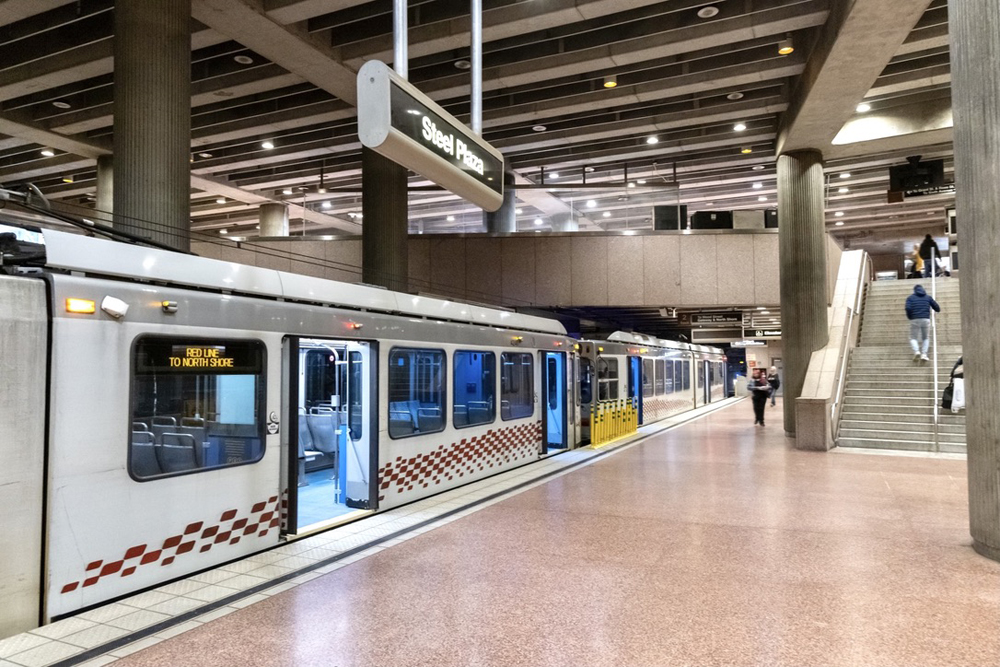

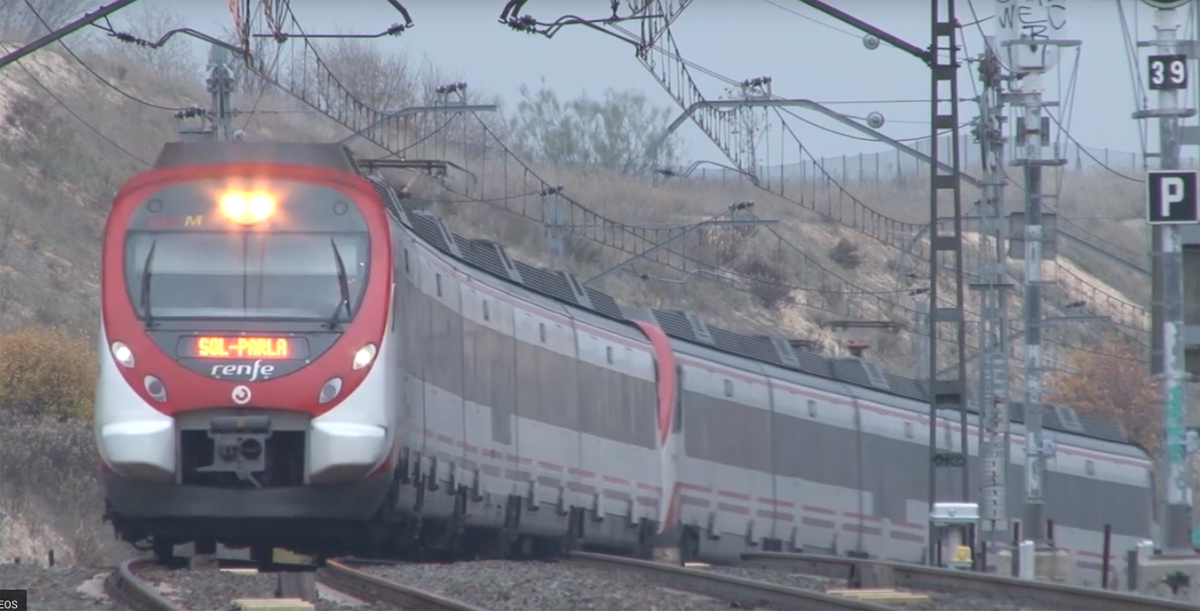
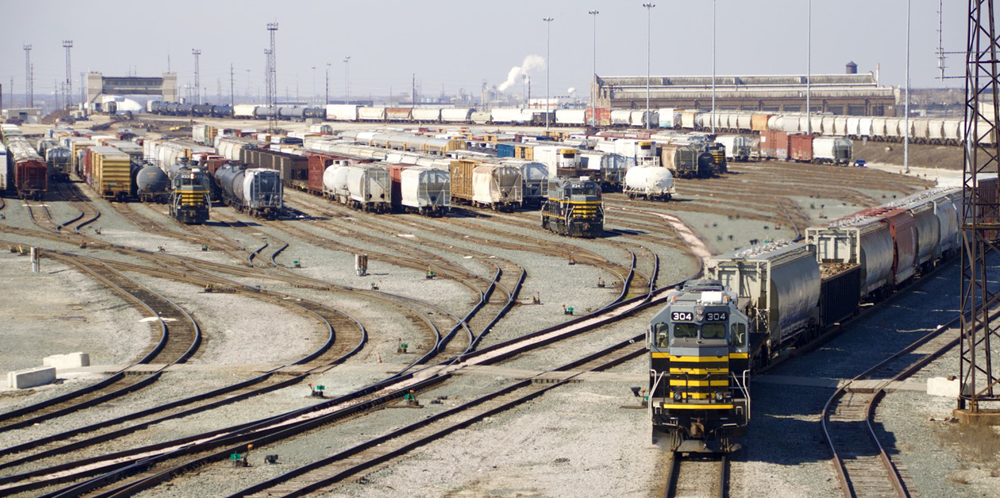




Fastest trains in Europe for a line that keeps shrinking by the hour.